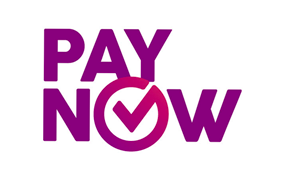
Delayed Aqiqah for Older Children or Adults
The practice of aqiqah—a sunnah act of slaughtering an animal to celebrate the birth of a child—is deeply rooted in Islamic tradition. While it is highly recommended to perform aqiqah on the 7th, 14th, or 21st day after a child’s birth, many families may find themselves unable to meet these timeframes. The realities of parenthood, especially for newborns, often come with financial and logistical challenges that make early aqiqah difficult.
The good news is that the 21-day guideline is not an absolute requirement. Muslims are encouraged to perform aqiqah whenever they are able, whether their child is older or even as an adult.
Challenges Faced by Parents of Newborns
Challenges Faced by Parents of Newborns
Welcoming a new life into the family is a joyous occasion, but it also brings a host of immediate responsibilities. For many parents, the early days are a whirlwind of activity, adjustments, and significant financial outlays. Some of the most common challenges include:
- Delivery and Hospital Costs
Depending on the circumstances of the birth, hospital and delivery costs can be substantial. This is especially true for families who require longer hospital stays or encounter complications during delivery. These unexpected expenses often take priority, leaving little room for aqiqah in the early days.
- Immediate Medical Needs
Newborns sometimes require urgent or specialized medical care, such as neonatal treatment, vaccinations, or other interventions. These medical expenses can strain a family’s budget, delaying non-essential expenditures like aqiqah.
- Essential Baby Supplies
From diapers to baby formula, clothes, and bedding, the list of immediate necessities for a newborn is extensive. Many parents also need to budget for items such as car seats, strollers, and cribs.
- Long-Term Financial Planning
For families already navigating tight budgets, the arrival of a child can necessitate prioritizing long-term needs over short-term celebrations. Saving for the future, repaying debts, or managing household expenses may take precedence over aqiqah.
These considerations are valid and understandable. In Islam, the well-being of the family and child is a priority, and the flexibility in performing aqiqah later ensures that families can honor the tradition without undue hardship.
For example, some parents who engaged us used their Baby Bonus Scheme cash grants for financing their child’s aqiqah. If you are unaware, the Baby Bonus scheme offers financial support that can be strategically utilized for various child-related expenses, including the performance of aqiqah. The scheme includes provision of cash as a gift. By allocating a portion of these funds, parents can plan for their child’s aqiqah, and fulfill religious obligations, while effectively managing available resources.
Performing Aqiqah Later in Life
For parents who delayed aqiqah due to financial or logistical reasons, it’s important to know that the door to fulfilling this sunnah remains open. Whether your child is a toddler, teenager, or adult, aqiqah can still be performed. For adults whose parents were unable to conduct aqiqah during their childhood, there is also an opportunity to perform aqiqah for themselves:
Ismaa’il ibn Sa’eed al-Shaalanji asked (Imam) Ahmed regarding a man whose father informed him that he did not perform an aqeeqah on his behalf–should he perform it on his own behalf? He said,
“That is the father’s duty.” …
and it was said, “Should one perform an aqeeqah on his own behalf as an adult?” … and I saw that it is preferrable if an aqeeqah was not performed as a child then it should be performed as an adult, and (Imam Ahmed) said:
“If someone does that I would not discourage it or regard it as reprehensible.”
Tuhfat ul-Mawdood bi-Ahkaam il-Mawlood” by Imam Ibn ul-Qayyim, Chapter 6: “The Aqeeqah and its Rulings”, Part 19
Why Aqiqah Later in Life is Still Significant
One of the most common misconceptions is that aqiqah must be performed within the first 21 days of a child’s life. While this timing carries blessings, the act of aqiqah remains valid and significant at any time. It is a myth to believe delayed aqiqah lacks the same reward. On the contrary, fulfilling this sunnah whenever possible reflects sincere intentions:
- Gratitude to Allah
The purpose of aqiqah is to express gratitude to Allah for the blessing of life. This intention remains valid no matter when the aqiqah is performed.
- Blessings and Protection
Performing aqiqah brings blessings to the individual and their family, and it is believed to serve as protection for the child or adult.
- Fulfilling a Sunnah
Completing aqiqah honors an important sunnah of the Prophet Muhammad (SAW).
- Inclusivity for All Ages
By performing aqiqah later, families ensure that no child or adult misses out on the blessings of this tradition.
Conclusion
Parenthood comes with challenges, and it is natural for families to prioritize immediate needs like medical care, baby supplies, and financial stability. The flexibility of aqiqah allows families to fulfill this meaningful sunnah at a time that works best for them, whether for a child or even for themselves as adults.
At Aqiqah.sg, we are here to support you in performing aqiqah whenever you are ready. Our services are designed to make the process seamless, meaningful, and accessible for families at all stages.
Remember, it’s never too late to express gratitude to Allah for His blessings. Let us help you honor this cherished tradition—because aqiqah is a celebration of life, love, and faith that transcends age.
Article-Related Products/Services


Questions?
Drop us a WhatsApp and we'll be glad to assist!
Mondays to Fridays 9.30am to 5.30pm
Closed on Sat, Sun, PH
Or contact us via webform
Sales Office
62 Ubi Rd 1,
#05-18 Oxley Bizhub 2
Singapore 408734
Operational Hours:
(Mon - Fri) 9.30 am to 5.30 pm
Closed:
Sat, Sun and PH
We Accept
 |
/ Bank Transfer






